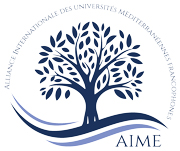AccueilRechercheProgrammes et productions scientifiquesThèsesThèses soutenuesThèses soutenues - 2024
-
Partager cette page
- Recherche,
- Philosophie,
ROUY Mathieu
Le champs d’application du droit de l’Union européenne. Étude à partir de la citoyenneté de l'Union européenne
Thèse en Droit, soutenue le 02/07/2024.
Si la délimitation du champ d’application est une opération primordiale en droit de l’Union, en raison notamment du caractère intégré, mais incomplet de l’ordre juridique de l’Union, cette opération se révèle bien souvent complexe à appréhender tant ce champ paraît malléable, évolutif et parfois nébuleux. À partir de l’exemple particulier de la citoyenneté européenne, l’étude entreprise vise à analyser et questionner les contours du champ d’application du droit de l’Union. Or, la lecture des textes et l’étude de la jurisprudence révèlent que si la fonction première du champ d’application du droit de l’Union demeure celle de délimiter les contours du statut de citoyen de l’Union et d’identifier un éventuel rattachement de la situation d’un requérant au droit de l’Union, celle-ci se double d’une fonction secondaire, matérialisée par l’influence de cette délimitation sur la construction du statut de citoyen de l’Union. L’ambition de cette étude est ainsi de comprendre l’origine d’une telle fonction, et ses matérialisations. La mise en exergue de cette fonction conduira, dans un second temps, à interroger et apprécier les effets de cette lecture dynamique du champ d’application du droit de la citoyenneté de l’Union. Or, celle-ci paraît entraîner une profonde altération des contours de ce champ, complexifiant alors la construction optimale du statut de citoyen européen. L’objectif de l’étude est alors d’appréhender cette altération et d’interroger les éventuelles perspectives de renouvellement et les potentielles systématisations pouvant contribuer à la clarification des contours du champ d’application du droit de l’Union.
Mots-clés : Droit de l’Union européenne ; Champ d’application ; Citoyenneté de l’Union européenne ; Cour de justice de l’Union européenne
Although the delimitation of the scope of application is an essential operation in EU law, due to the integrated but incomplete nature of the Union's legal order, this operation often proves to be so complex to grasp that the scope appears to be malleable, evolving and sometimes nebulous. Using the specific example of European citizenship, this study aims at analysing and questioning the contours of the scope of EU law. A reading of the texts and a study of the case law show that while the primary function of the scope of Union law remains that of delimiting the contours of the status of citizen of the Union and identifying a possible link between the situation of an applicant and Union law, this function is coupled with a secondary function, materialised by the influence of this delimitation on the construction of the status of citizen of the Union. The aim of this research is to understand the origins of this function and how it has been constructed. Highlighting this function will then lead us to examine and assess the implications of this dynamic interpretation of the scope of Union citizenship law. However, this seems to lead to a profound alteration of the contours of this field, thus complicating the optimal construction of the status of European citizen. The aim of this study is therefore to understand this change and to examine possible prospects for renewal and possible systematisations that could contribute to clarifying the contours of the field of application of Union law.
Keywords: European union law ; Scope of application ; European citizenship ; European court of justice
Directeur/trice de thèse : Gaëlle MARTI
Membres du jury :
- ILIOPOULOU-PENOT Anastasia, Rapporteure, Professeure des universités, université Paris-Panthéon-Assas,
- PATAUT Etienne, Rapporteur, Professeur des universités, université Paris 1 Panthéon-Sorbonne,
- BAILLEUX Antoine, Professeur, université catholique de Louvain Saint-Louis Bruxelles, Belgique,
- BARBOU DES PLACES Ségolène, Professeure des universités, université Paris 1 Panthéon-Sorbonne,
- BASILIEN GAINCHE Marie-Laure, Professeure des universités, université Jean Moulin Lyon 3.
Présidente du jury : Ségolène BARBOU DES PLACES







